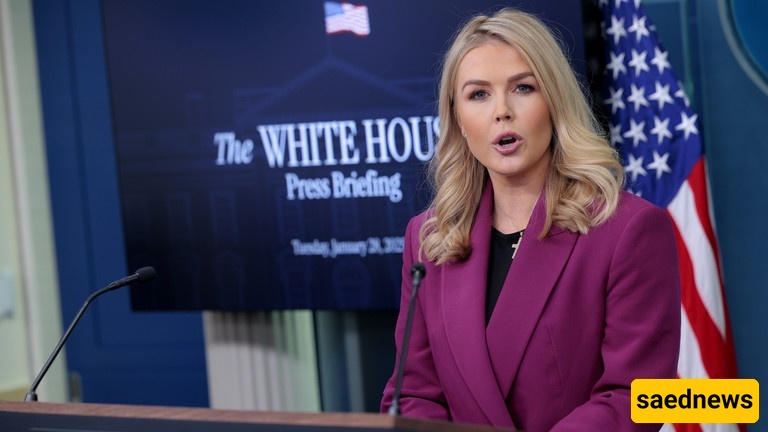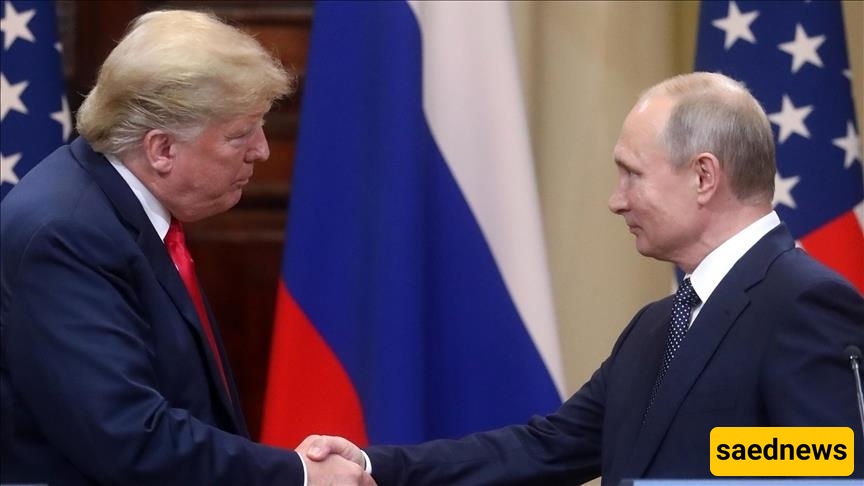SAEDNEWS: While the White House has recently announced the possibility of Donald Trump traveling to Russia, these remarks have sparked a wave of speculation in the fields of U.S. foreign policy and international relations.

According to SaedNews, citing Russia Today, in recent days, statements from White House officials regarding the potential trip of Donald Trump, former U.S. President, to Russia have drawn the attention of media outlets and political analysts. Although no exact details about the timing and location of this trip have been released, the matter has gained particular importance ahead of the upcoming meeting between Trump and Vladimir Putin, President of Russia, in Alaska.

The White House stated that Trump will meet with Putin on Friday in Anchorage, Alaska. This meeting has been described as a “listening exercise,” meaning that Trump intends to explore possible ways to end the war in Ukraine by hearing Putin’s views and proposals. This will be the first in-person meeting between Trump and Putin since the start of the Ukraine war in 2022.
The selection of Alaska as the meeting venue carries strategic significance due to its geographical position and proximity to Russia. Some analysts believe that this choice may symbolize America’s willingness for direct engagement with Russia. At the same time, the meeting takes place amid ongoing tensions between Washington and Moscow over issues such as the Ukraine war, sanctions, and nuclear matters.
In recent weeks, Trump has made remarks about the possibility of traveling to Russia. In an interview, he stated that if necessary, he is ready to visit Russia to discuss various issues with Russian officials. Although these statements were made unofficially, they indicate Trump’s willingness to return to the foreign policy arena and engage directly with Russia.
Meanwhile, Russian officials have also responded to this possibility. They announced that if Trump visits Russia, they are ready to host him and discuss various matters. These reactions reflect Moscow’s desire to strengthen relations with Washington and resolve disputes through diplomacy.
However, some analysts believe that these statements and the potential trip to Russia are largely promotional, aiming to attract media attention and public interest. They argue that given the complexities of international relations and domestic issues in the U.S., the realization of such a trip seems unlikely.
Ultimately, it remains to be seen whether this possibility will materialize or remain speculation. What is certain, however, is that relations between the U.S. and Russia during Trump’s era—particularly in economic, military, and diplomatic spheres—will be affected, potentially reshaping developments in the international arena.
In the meantime, European countries and U.S. allies are closely monitoring the developments. They are concerned that any rapprochement between Washington and Moscow, particularly in economic and military fields, could weaken sanctions and joint policies against Russia. Therefore, these countries are also analyzing the situation to respond appropriately if necessary.
Overall, the potential trip of Trump to Russia and the meeting with Putin represents a significant development in international relations. This event could have wide-ranging consequences across various fields and impact the future of U.S.-Russia relations. Accordingly, careful monitoring and analysis of this topic are essential for understanding future developments.
In conclusion, international relations are always influenced by various factors, making accurate predictions of future developments challenging. Nevertheless, it is certain that any change in U.S. overarching policies—especially toward Russia—can have profound effects on global structures. Consequently, analysts and policymakers must follow these developments carefully and take appropriate actions when necessary.

